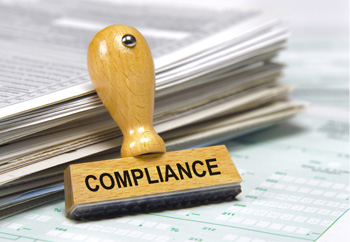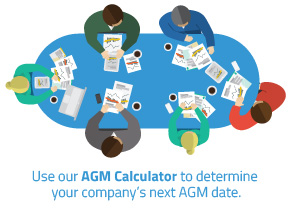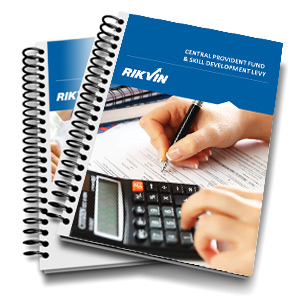Regulatory Compliance
Statutory Compliance in Singapore

Singapore is renowned for its ease of business setup and operation, thanks in part to its orderly and transparent legal framework. The Companies Act outlines statutory obligations that promote understanding among investors and stakeholders regarding a company’s adherence to governance, risk management, and compliance (GRC).
Most compliance requirements are straightforward and are detailed in materials from regulatory bodies like the Accounting and Corporate Regulatory Authority (ACRA) and the Inland Revenue Authority of Singapore (IRAS).
Companies in Singapore should engage a professional corporate services firm to handle these obligations, which, while mostly post-incorporation, have specific compliance timelines. Planning for these requirements early in the incorporation process ensures timely adherence.
Table of Contents
- Financial Year End
- Appointment of Auditors
- Disclosure of the Company’s Registration Number
- Notification of Changes
- Tax and Accounting Requirements
- Business Licenses and Permits
- Registered Office Address
- Holding of Annual General Meeting and Filing of Annual Returns
- Goods and Services Tax Registration
- CPF registration or SDF registration
Financial Year End

All companies should determine a financial year- end. Companies that are owned by multinational corporations, foreign corporations or other local companies would typically prefer to follow the same financial year-end. This is so that the group’s consolidated financial accounts can be prepared more easily as the parent company and its subsidiaries’ accounts are finalised in the same period.
One key consideration for newly incorporated companies is to set the company’s financial year end within 365 days to enjoy tax benefits, as IRAS extends full tax exemption to newly incorporated companies that meet the qualifying conditions on the first S$100,000 of chargeable income for each of its first three consecutive years of assessment. Do note however, that the said tax exemption does not apply to property and investment holding companies.
Appointment of Auditors

Companies are required to appoint an auditor within three months of incorporation, but they are exempt from this requirement in three specific cases:
- Small Company Criteria: Applies if the company is privately owned, and meets at least two of the following in the current year:
- Annual revenue up to $10 million.
- Total assets up to $10 million.
- No more than 50 employees.
- Small Group Criteria: Applies if the group meets at least two of the following for two consecutive years prior to the current financial year:
- Consolidated revenue up to $10 million.
- Consolidated total assets up to $10 million.
- No more than 50 employees in total.
- Dormant Company: Applies if there have been no accounting transactions since incorporation or since the end of the previous financial year.
Similar to the financial year end, multi-national corporations, foreign entities or parent companies may wish to consider engaging the same audit firm to carry out the audit
Disclosure of the Company’s Registration Number

It is essential that the company discloses its registration number on all official correspondences with government authorities, business letters, audited accounts, invoices; and any other official notices sent out by the company. Government agencies in particular, will often refer to a company by its registration number. For example, IRAS uses the company’s registration number as its tax reference number.
Notification of Changes

Do consult a professional corporate service firm before executing any changes, as a professional would be able to advise you of the stipulated timeline as set out by the Companies Act. For certain changes, such as allotment of shares, companies are required to lodge the change with ACRA within 14 days. In addition, the company should also prepare and execute the necessary documentation to maintain proper records in its minute book. In the instance where shares are transferred, both the ACRA and IRAS need to be notified.
Tax and Accounting Requirements
IRAS require companies to submit certain documents on an annual basis, which are set out in the table below:
| Estimated Chargeable Income | An estimate of the company’s chargeable income for the Year of Assessment (YA). This should be submitted within 3 months after the financial year end |
| Accounting Records | Comprising Profit and Loss Account, Balance Sheet, Cash Flow Statement and Equity Statement |
| Tax Returns | Audited or unaudited accounts accompanied by a tax computation form (known as the Form C or Form C-S) |
| Financial Report | Financial statements of the company |
Depending on your company’s finances, number of accounting transactions, sales turnover and shareholders, the information to be filled in the documents may differ. For companies that are new to the submission process with IRAS, it may be prudent to engage an experienced professional tax or accounting consultant to advise and assist.
Business Licenses and Permits
This requirement is specific to companies that are engaged in businesses that require licenses before they can commence business operations. Examples of business activities that would require special licenses include, but are not limited to:

- Retail stores
- Construction companies
- Companies dealing with import and export
- Hotels and Spas
- Medical clinics or associated services
- Employment agency
- Travel agency
- Companies offering financial advisory services or any other associated services
- Real estate agency
- Private education services
For more information, one would need to find out more about which statutory board governs the specific industry and its activities. As the Singapore government as a whole is generally very advanced in the use of technology, most of these applications can be submitted electronically via their websites or portals.
Registered Office Address

All companies should have a local registered office address, which cannot be a P.O. Box.
The office should be open to the public for a minimum of three hours per day during normal business hours on weekdays.
The registered office of a company must be located in Singapore, although it doesn’t have to serve as the business’s operational site. For example, while the registered office could be in Raffles Place, the actual manufacturing might occur in Tuas.
Small businesses operating from home can use their residential address as the registered office under the Home Office Scheme, overseen by the Housing Development Board (HDB) for HDB flats and the Urban Redevelopment Authority (URA) for private residences.
Any changes to the registered address must be reported to ACRA within 14 days of the change.
Holding of Annual General Meeting and Filing of Annual Returns

Once an AGM is held, the Annual Return of the company should be filed with the ACRA after its AGM and within one month (in the case of unlisted comapnies) from the date of AGM. The Annual Return is typically submitted electronically by the company’s company secretary or corporate secretarial service provider and the following information of the company will be verified during the process:
- Company’s full name and registration number;
- Registered address
- Principal activities
- Company type (i.e. private company, public company, small exempt private company)
- Summary of issued and paid-up share capital
- Registered charges
- Information of Directors, Company Secretary, Auditors and Shareholders
- Date of AGM and the financial period that the audited accounts have been made up to
- Financial statements, if applicable
Depending on the company type, different requirements would apply when it comes to filing the Annual Returns and preparation of the audited accounts. A quick snapshot of the requirements for the three most common company types is depicted below:
| Public company limited by shares | Private company limited by shares | Small or Dormant Exempt private company | |
|---|---|---|---|
| Unaudited accounts | x | x | |
| Audited accounts | x | ||
| Partial XBRL | x | x | |
| Full XBRL | x |
Goods and Services Tax Registration

However, only companies that fulfil any one the following criteria are required to be GST-registered:
- Annual taxable revenue exceeds S$1 million;
- Company manufactures taxable supplies and its annual taxable revenue is expected to exceed S$1 million.
A company can also opt to be GST-registered voluntarily and will have to comply with all obligations that apply to GST-registered companies. Even if its turnover is less than S$1 million, a company may still opt to register for GST voluntarily.
Companies that are GST-registered will have to comply with the following:
- Charge and account for GST on standard rate supplies
- E-filing of accurate GST returns in a timely manner
- Payment of tax in a timely manner
- Retain business and accounting records for five years
- Include GST in any price displays, advertisements, quotations, publications and invoices
- Be co-operative with any GST audits
- Accounting for GST on Business Assets at point of De-registration
To understand more about GST registration, you may wish to consult a professional tax specialist.
CPF Registration or SDF Registration

For work pass holders and employment pass holders, their employer is required to contribute a fee to the Skills Development Fund (“SDF”). This is payable up to the first S$4,500 of the employee’s gross monthly income.
FAQs
- No, the exemption is not deferred. It is only available for the first three YAs post incorporation. If not used within these years, it cannot be claimed in later YAs.
- The audit exemption for small companies is designed exclusively for companies that are incorporated in Singapore. This means foreign companies do not directly qualify for this exemption based on their incorporation status. However, in assessing whether a company is part of a small group (for exemption purposes), all entities within the group, including those incorporated abroad, are considered. This assessment involves checking if the combined total revenue and total assets of the entire group, including foreign subsidiaries, meet specific thresholds that qualify them for the exemption.
- No, GST is a tax that requires self-assessment. Businesses must track their annual taxable sales and register for GST once they surpass S$1 million in turnover.
However, if you proactively inform the authorities of your delay in registering and apply after the deadline, fines and penalties for late notification are usually waived.
Stay on top of regulatory compliance requirements
We are experts when it comes to Singapore's company laws and regulations. Thousands of companies rely on us to fulfil their regulatory compliance requirements.

